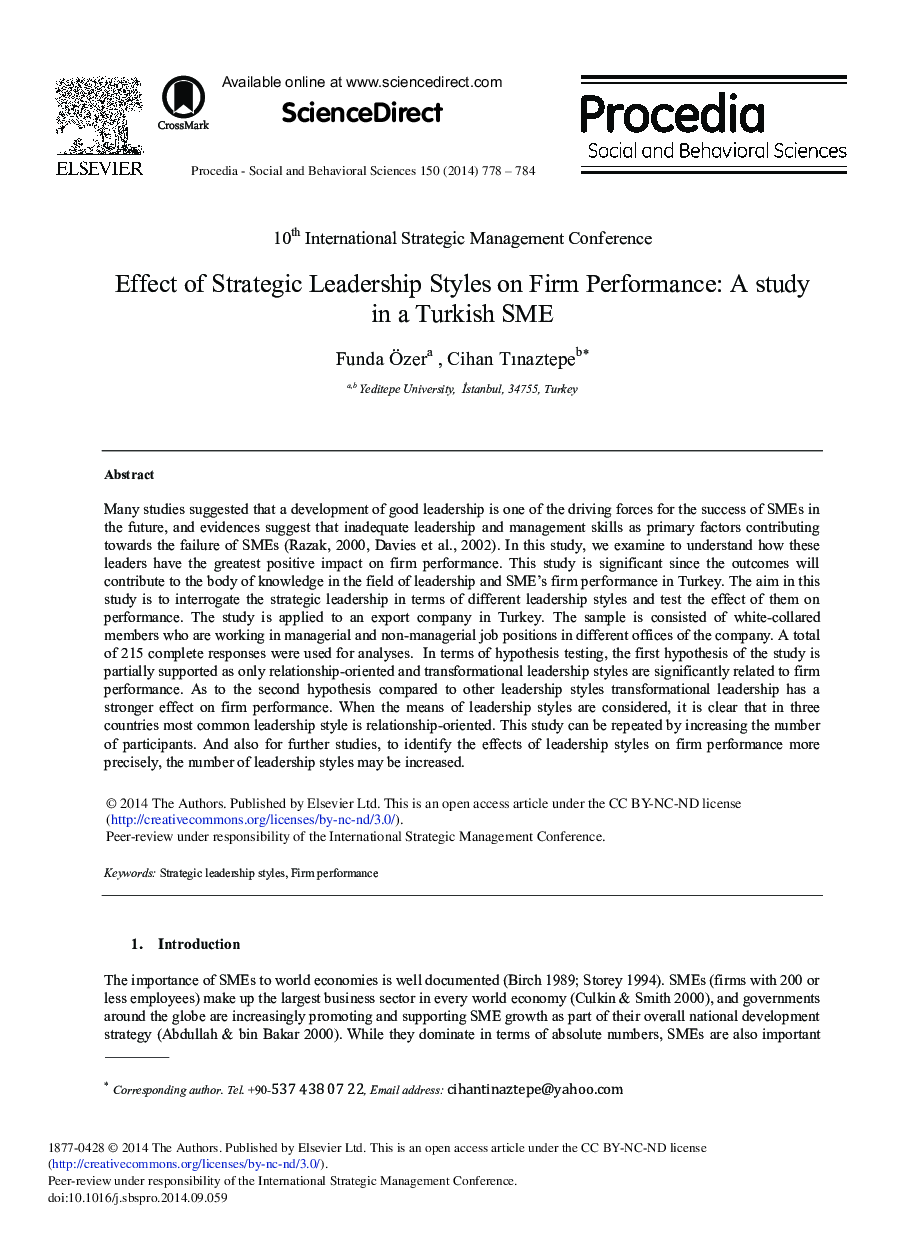| Article ID | Journal | Published Year | Pages | File Type |
|---|---|---|---|---|
| 1113381 | Procedia - Social and Behavioral Sciences | 2014 | 7 Pages |
Many studies suggested that a development of good leadership is one of the driving forces for the success of SMEs in the future, and evidences suggest that inadequate leadership and management skills as primary factors contributing towards the failure of SMEs (Razak, 2000, Davies et al., 2002). In this study, we examine to understand how these leaders have the greatest positive impact on firm performance. This study is significant since the outcomes will contribute to the body of knowledge in the field of leadership and SME's firm performance in Turkey. The aim in this study is to interrogate the strategic leadership in terms of different leadership styles and test the effect of them on performance. The study is applied to an export company in Turkey. The sample is consisted of white-collared members who are working in managerial and non-managerial job positions in different offices of the company. A total of 215 complete responses were used for analyses. In terms of hypothesis testing, the first hypothesis of the study is partially supported as only relationship-oriented and transformational leadership styles are significantly related to firm performance. As to the second hypothesis compared to other leadership styles transformational leadership has a stronger effect on firm performance. When the means of leadership styles are considered, it is clear that in three countries most common leadership style is relationship-oriented. This study can be repeated by increasing the number of participants. And also for further studies, to identify the effects of leadership styles on firm performance more precisely, the number of leadership styles may be increased.
